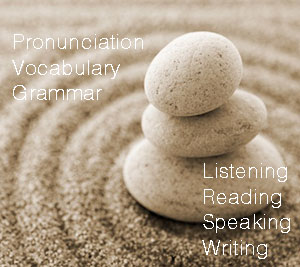 At some periods of life I needed to learn huge volumes of English vocabulary very quickly. The first time it happened when I was 20, preparing for two difficult exams: TOEFFL and GRE. Surprisingly, I discovered that my vocabulary left much to be desired. So, I spent hours and days learning.
At some periods of life I needed to learn huge volumes of English vocabulary very quickly. The first time it happened when I was 20, preparing for two difficult exams: TOEFFL and GRE. Surprisingly, I discovered that my vocabulary left much to be desired. So, I spent hours and days learning.
Nowadays, my students often need to expand their vocabulary from about 2500 words to 6000-7000 at a VERY VERY short notice. It is often the case when they need IELTS 7 or when they want to study abroad. What do we do with them?
Actually, we use two main tools for intensive vocabulary build-up.
Tool №1 Google spreadsheet – a convenient tool for Skype lessons
One important tool that most of my students use is a Google doc or a spreadsheet. It will take you just a minute to create it if you have a Google account. Here is an example how it looks:
You can see that my students try to write down not just one word, but a collocation.
It is extremely important to use collocations, not just separate words. For example, if you write just “invest”, you won’t be able to use this word correctly. If you write “invest in property”, you will know that you need to use “in” after “invest”. You can read more about the importance of collocations here.
Why do we need a Google spreadsheet? It is helpful in several ways. First, I can correct any mistakes a student made in spelling or translation because both of us can edit this document. Second, I can check how well they learned their vocabulary and help them to activate it. Third, you can add excellent examples of your collocations in context.
We use three great dictionaries to find transcription and sentence examples: Cambridge, Macmillan and Oxford.
Tool№2 Anki – a powerful tool for self learning
What is Anki
Anki is an application that helps you to create vocabulary cards and later practice them. You can either use it online or download it to your computer.
Whatever way you choose, it is important to use it every day, adding new cards and revising. Usually, at first my students add new collocations into a Google spreadsheet, after which I have a look at them and make some corrections. Only then they create cards from those collocations in Anki.
In order to understand how it works, you can watch some videos by John Aiton, an experienced ESL teacher.
How to create cards
Here are some examples of Anki cards with the collocation “to invest in property”.
Card 1
side 1: инвестировать в недвижимость
side 2: to invest in property
Card 2
side 1: to ___ in property (give money)
side 2: to invest in property
Card 3
side 1: to invest __ property
side 2: to invest in property
Why did we create 3 cards for one collocation? Card 1 will help you to connect English with Russian (or any other native language). Card 2 will help you develop your thinking in English. Card 3 will activate the preposition that you need to use after “invest”.
What about pronunciation?
Anki gives you a great opportunity to record the pronunciation. Before you do this, make sure to check the transcription in Cambridge dictionary and click on the word’s pronunciation. After that, click on the sign “record” in Anki and record your own voice. This will help you to learn this collocation more quickly, because you will use 2 channels of perception: visual and audial.
How many Anki decks do you need?
In Anki you can have different decks. A piece of advice is to have decks sorted by themes, e.g. Idioms, Collocations, Phrasal Verbs, Business English.
Then you can spend 15-40 minutes every day revising. Anki will offer you some cards to revise every day, just make sure that you have revised all the decks.
Let us remember the key points:
– Use two tools: Google doc and Anki
– Write collocations, not words
– Create several cards for each collocation
– Create English/English cards as well
– Group your cards by themes
– Record your pronunciation
– Practice with Anki every day
According to my experience, those who study new vocabulary using this method have great results in a few months.
You can read some more tips how to activate your vocabulary in the article Seven Powerful Techniques to Develop English Vocabulary.
 Русский
Русский English
English


